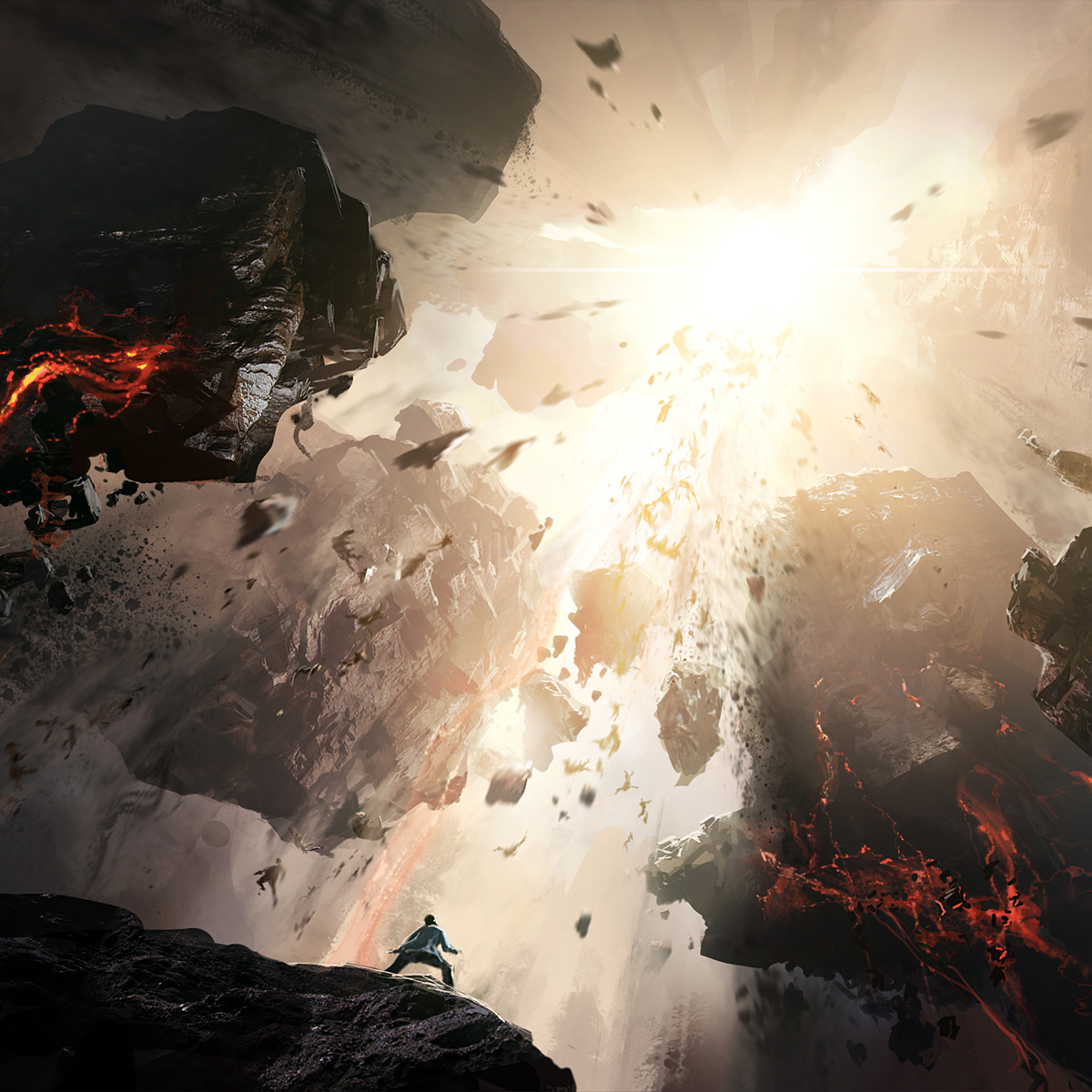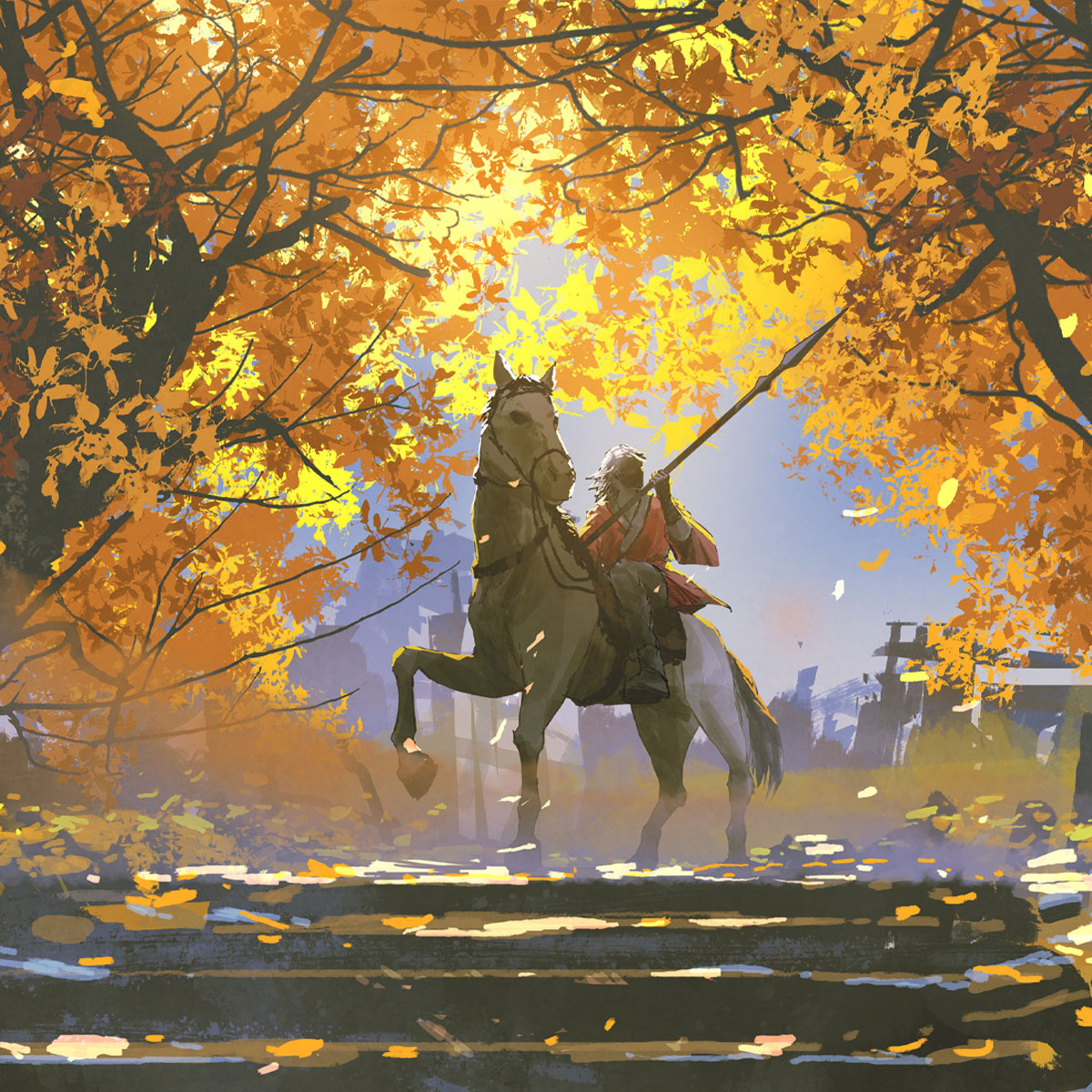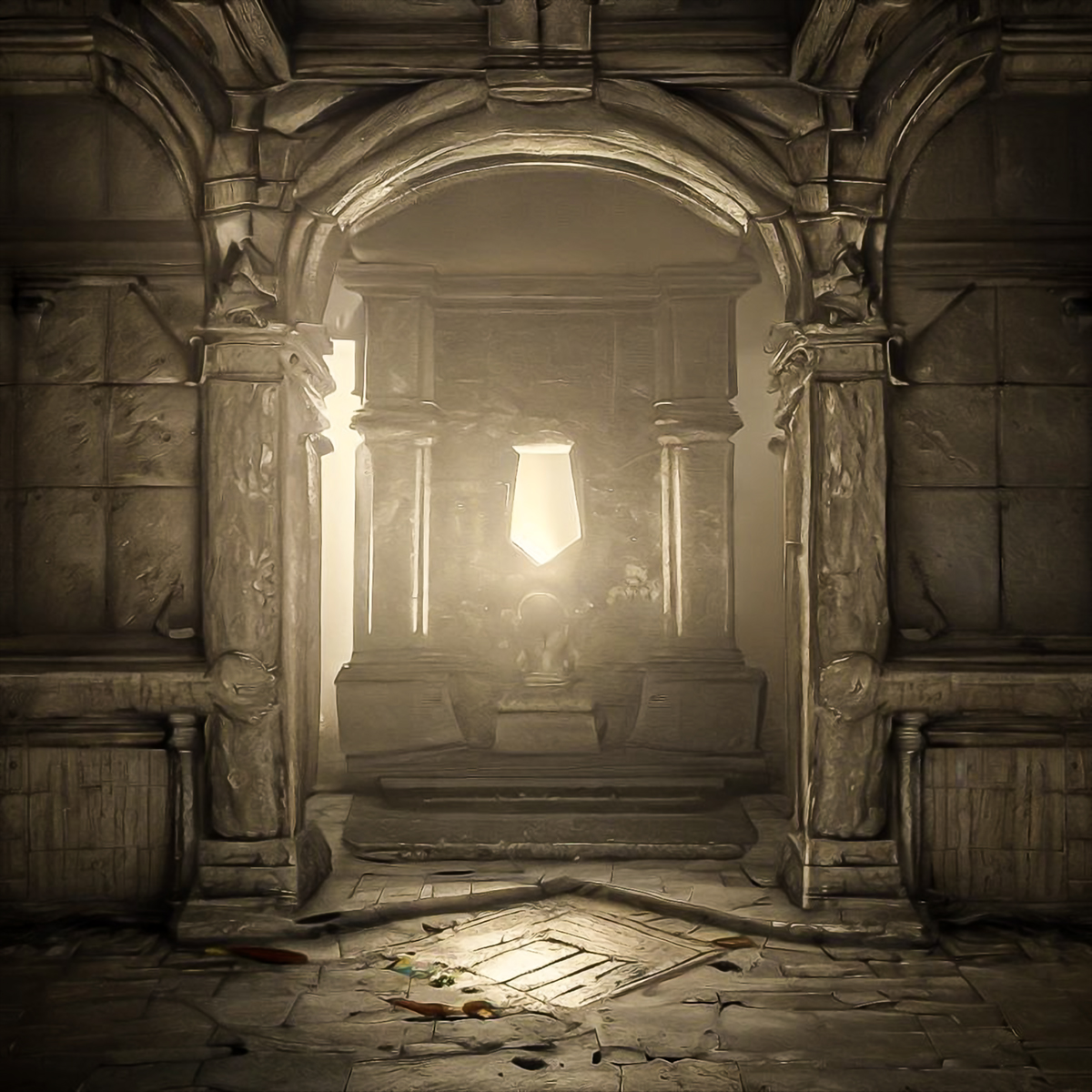
Being a game master is a lot of work, often a lot of thankless work. We spend hours, days, and even weeks putting together adventures and content for our games, only for everything to go off the rails. The dice fall badly, leading to a total party kill (TPK) at the start of the adventure, or the party decides to go off in another direction entirely. Every game master is different, and while some try to plan for every contingency, others thrive on the chaos. What doesn’t change is that how we react to the chaos defines who we are as game masters.
The Known
What we, as storytellers, know about our game provides the basis for our adventures. The known is the material and content we prepare for our games, whether that be as simple as reading through a published adventure module or spending weeks crafting an epic custom adventure. It is our copious notes, campaign planning, plotlines, adventures, maps, and all the challenges we want to provide for our players.
Some game masters are improv geniuses and prefer not to prepare for games, letting the adventurers do as they may and seeing where the story takes them. For the rest of us, we need to prepare. Some like to prepare a little, an adventure or two, and then develop more as they learn where the players go, whereas others like to prepare a lot, building entire campaign worlds of content to prepare for anything the players might do.
The known dictates our ability to respond to the unknown and adapt to the chaos.
Part of the reason some game masters prefer not to prepare is that it takes time. Sometimes it takes a lot of time. I am particularly subject to the curse of over-preparation. I have spent months creating content for games (which is a big reason for many of the tools on this site, such as the content generator). I like creating intricate plotlines, unique dungeons, and detailed settings. However, I have also run games with no preparation; after all, sometimes life just gets in the way.
There’s no wrong way to prepare for a game, and what works for one game master doesn’t work for all. However, the work we do for the known dictates our ability to respond to the unknown and how we adapt to the chaos.
The Unknown
You have read the adventure module and know the dungeon well enough to run it, then a series of unlucky rolls leads to the entire party being killed in the first combat. You planned a non-player character (NPC) for the players to capture and gather important plot information from, but they kill the NPC instead. What you thought was a simple puzzle stymies the players completely, bringing the entire adventure to a halt. There are many ways things can go wrong in a game, and there are things that we can’t plan for. Most of that is how the dice will fall and what our players will do.
We can prepare as much as we think we will need for a game, but ultimately something will happen that we didn’t foresee. It is impossible to plan for every contingency, partially because we would spend forever planning and never actually playing, but also because we simply can’t anticipate everything. What we can do is plan for what we expect, give some thought to how things might go awry, and be as ready as possible for the unexpected.
Try to plan adventures without a single chokepoint that may prematurely end the adventure.
Readiness generally means having another solution to a puzzle, another NPC with the information the players need, or even just being prepared to fudge the dice a little, so the characters don’t all die in a meaningless fight. The players may miss that secret room, so it shouldn’t hold the key to the adventure. Try to plan your adventures so that there isn’t a single chokepoint that ends the adventure completely.
Ultimately, things will still go awry, and this is where things can become difficult for a game master. The more you have prepared, the easier it is to react to the unexpected. If you have a few extra monsters prepared “just in case,” you can drop them in as your players decimate their enemies. Likewise, moving an enemy or two into reserve lets you adapt when your players are completely overwhelmed. Create a few NPCs, just in case the players decide to talk to someone you didn’t expect. You don’t have to plan them out entirely, but a few details make it seem like you have prepared for anything.
Planning a few extra details makes it seem like you have prepared for anything.
If you’re struggling to come up with a name, or worse, just describing an obviously generic NPC, your players will notice. I’ve been there. My players went to talk to someone I hadn’t planned for, and my brain stopped working when I tried to come up with a name. Thus was born Bob. I was lucky that I was able to turn my lapse into a running joke in that campaign, and all generic NPCs became Bob, in actuality, the same Bob in different outfits and roles (even lady Bob). It worked there, but in a more serious campaign might have been seriously derailed. Now, I always keep a list of 50 or so names ready to go.
Chaos!
Then there are the entirely unexpected things that crop up in a game. The players ignore every plot hook and go off on a tangent, looking for that undrawn part of the map. They accidentally start a small fire that burns down half the city, or beyond all reason, make friends with the big bad evil guy (BBEG). They discover a portal to another plane and decide, on the spot, to just jump through and see what happens. Players do odd things, and sometimes those things throw all of our plans right out the window. We can spend weeks creating a detailed city full of adventure for the players, only for them to say they want to head into the mountains. Remember that players (and dice) are ultimately just thinly veiled agents of chaos.
For many game masters, improvisation is not only challenging but downright terrifying.
How we react and adapt to the chaos defines us as game masters. Some love the chaos, seeing an opportunity for new stories, adventures, and improv. Others hate when things go off the rails and try to force the players back into their planned adventure (i.e., “railroading”). However, railroading your players into a situation rarely makes for a fun game and can often build resentment towards the game master. I envy those that genuinely thrive on the chaos, but for many game masters, improvisation and spontaneous storytelling are not only difficult but downright terrifying. Fortunately, a few things make adapting to the chaos a little bit easier.
One of the best tools for adapting to unexpected chaos is to be a little more fluid in your thinking and planning. You may think that the coastal town you had planned is wasted when your players head toward the mountains instead, but perhaps you can still use it. You can always save the town in case they go back later, or perhaps you can quickly adapt the town to the mountains instead. Change the shoreline into the base of a cliff, docks into entrances to a mine, and fisherfolk into miners. The names of NPCs, shops, and even the town itself need not change (unless they are all nautical-themed, but maybe the town was founded by a former pirate captain).
Don’t throw away your work; adapt what you can and save the rest for another day.
Likewise, a crypt or dungeon can be placed just about anywhere. Just because you planned for the entrance to be in the forgotten ruins of an ancient city doesn’t mean it can’t be in the temple of light where the party cleric decided to go. The players don’t know that the rumor of the dungeon they ignored is the same one that the archpriest is asking them to cleanse. It’s a little more challenging with heavily themed dungeons, but just because you created an adventure for a particular hook or location doesn’t mean you can’t quickly adapt it to someplace else. Don’t throw away your work; adapt what you can and save the rest for another day.
Another great tool in dealing with chaos is to let the players tell you what they want. As the players are heading into the swamplands that you hadn’t created, let them meet an NPC at their first evening camp. Have the NPC ask why they’re heading to the swamp or what rumors they’ve heard about it. There’s probably a reason the players decided to go that way, and knowing why is a good start in coming up with new content. If they have no good reason, let your NPC explain there’s nothing but mud, mosquitos, and rot in the swamp.
If you spend time role-playing the journey, you can buy time to plan adventures for the destination.
Have your NPC tell ghost stories or legends as they gather around the fire and listen to what the players say. Use your players’ imaginations. They’ll often give you dozens of ideas; some you can use, others you can twist, and some you can ignore or save for later. If you spend time role-playing the journey, you can buy yourself time to plan adventures for a new location.
The real danger when dealing with chaos and the unexpected is to panic. Chaos can often seem like an avalanche in that one thing goes wrong, and as we struggle to deal with the first thing, other unexpected situations begin piling up around us. If you can’t adapt quickly, it’s easy to become overwhelmed. Take a step back and breathe. Instead of letting the players get to a city you haven’t planned, let them meet one or two interesting NPCs on the way to the city. If they’re heading to the distant mountains, let them get distracted by some bandits along the way. Throw something strange, like a pure white stag, across their path and lead them on a merry chase through the woods. An ancient stone covered with cryptic runes can keep a party occupied for hours. Fill the current session with a small side-quest so you can regroup for the next one.
Conclusion
I wrote this article explicitly about gaming, but it applies to every aspect of our lives. There is an aspect of the known, the unknown, and chaos in everything we do, whether in our work, personal lives, or hobbies. The known is easy. It’s what we have prepared for, such as the report we made for work, the dinner plans we made with a friend, or the notes we took for class. The unknown is more difficult, but it’s often why we do the planning and work that we do. It’s how our coworkers or customers may react to our work, whether or not we have a good time at dinner, or what material will be on the test. We can try and plan or study for the unknown, we can prepare ourselves as much as possible to adapt to the unknown, but it’s simply not possible to prepare for everything. However, the more work we do for the known, the better our ability to deal with the unknown.
Then there’s the chaos. You get unexpectedly let go from your job, your car breaks down on your way to dinner, or you lose power and sleep in, missing your mid-term. There will always be aspects of our lives that we can’t control. They often feel like catastrophes because we didn’t foresee them in all of our planning. However, there’s nothing you can do about the chaos other than react and adapt to the new situation. Maybe you can recover, maybe not, but if you can’t adapt to the chaos, it starts to compound and increase exponentially. The situation has changed, and you can either change with it or drown in the chaos.
Want to continue the conversation? Join Our Discord



Commenting has been disabled for this post.